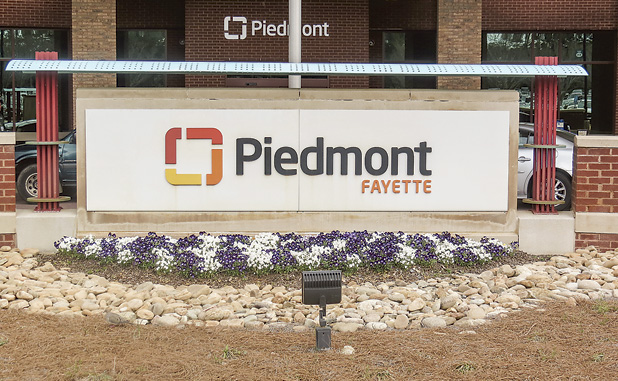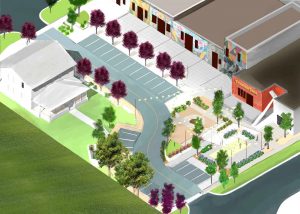A report by the Georgia Hospital Association noted that Piedmont Fayette Hospital in 2017 generated more than $631,413,431 in revenue for the local and state economy.
The report said Piedmont Fayette had direct expenditures of more than $269 million in 2017, with the total economic impact of those expenditures was $631,413,431 when combined with an economic multiplier developed by the United States Department of Commerce’s Bureau of Economic Analysis.
The output multiplier considers the “ripple” effect of direct hospital expenditures on other sectors of the economy, such as medical supplies, durable medical equipment and pharmaceuticals. Economic multipliers are used to model the resulting impact of a change in one industry on the “circular flow” of spending within an economy as a whole.
During the same time period, Piedmont Fayette provided approximately $15,816,155 in uncompensated care while sustaining more than 1,400 full-time jobs throughout Fayetteville and Georgia, according to the report.
When a U.S. Department of Commerce multiplier is applied to the jobs number, it is revealed that an additional 3,522 jobs are supported across the state due to the economic activity of Piedmont Fayette. The hospital spent $124,085,594 in salaries and benefits, resulting in total household earnings in the community of $244,250,083, according to the report.
“Piedmont Fayette’s purpose is to make a positive difference in every life we touch,” said Piedmont Fayette’s Chief Financial Officer Scott Wolfe. “We do that by providing high-quality, compassionate care to our patients. Our hospital has grown from 100 beds to 282 beds over the years so that we would be able to care for more patients. As we have done that, we are fortunate also to have made a positive economic impact on the local community.”
Wolfe maintained that every community needs nearby access to a strong, vibrant health care system that will not only meet the health care needs of its residents, but also attract other industries and businesses to the area.
“Preserving access to health care is extremely important and we are the primary guardian of health in our community,” said Wolfe. “A healthy community depends on the strength of its hospital, both financially and in treating patients.”













Leave a Comment
You must be logged in to post a comment.